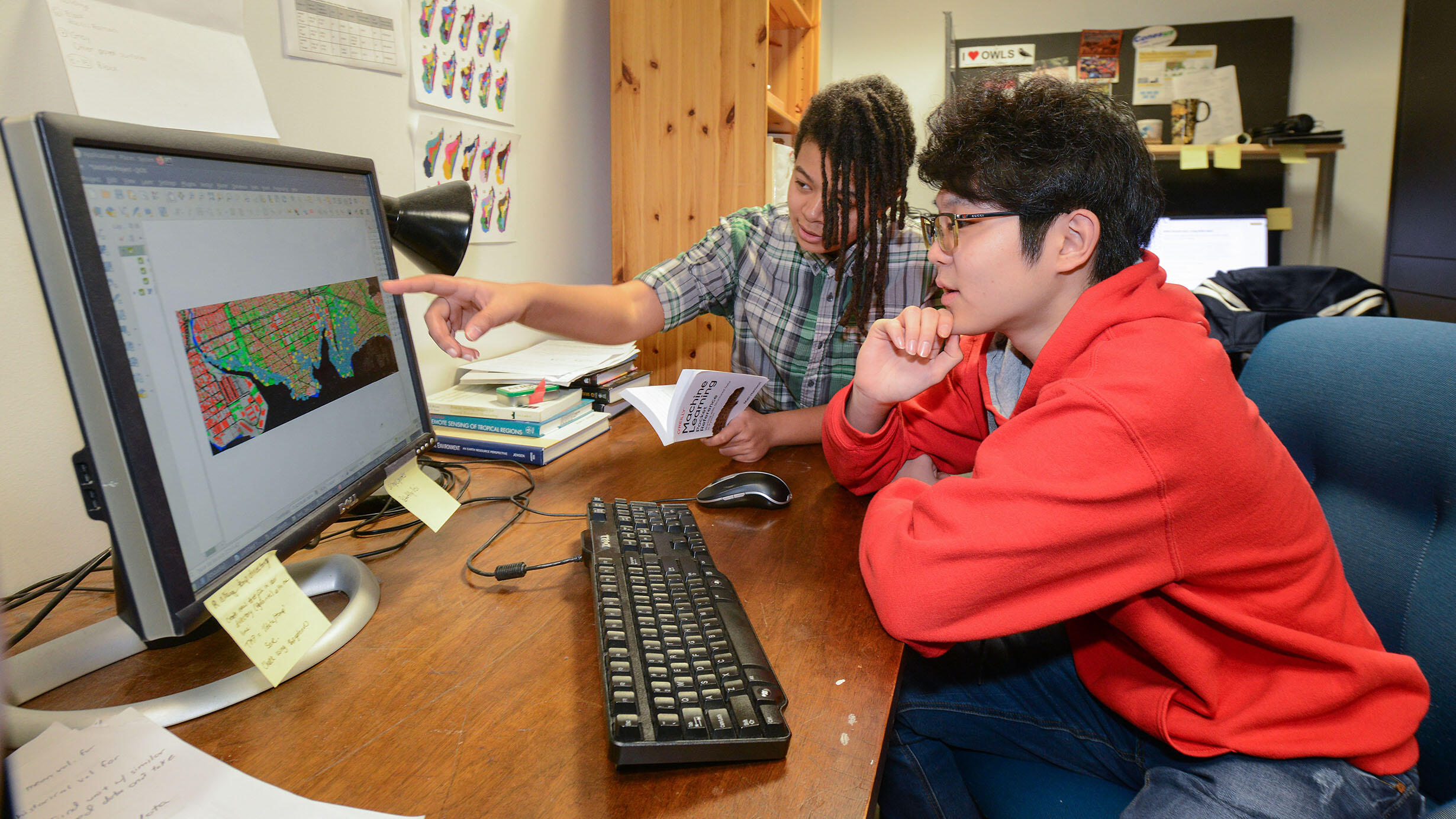Museum Partners with MIT to Introduce Students to AI in Scientific Research
by AMNH on
by AMNH on
 SRMP students Hunter Dillard-Jakubowicz (left) and Henry Lee (right) reviewing coyote telemetry data in February 2020 as part of their project that incorporates machine learning.
SRMP students Hunter Dillard-Jakubowicz (left) and Henry Lee (right) reviewing coyote telemetry data in February 2020 as part of their project that incorporates machine learning.As artificial intelligence (AI)—a branch of computer science that focuses on developing machine capabilities such as image recognition and learning from examples—changes how scientific research is practiced, introducing high school students to its applications is an important investment in preparing the next generation of scientists, and in ensuring access to the field by underrepresented groups, including women and people of color.
With a new grant from the National Science Foundation, the Museum’s Science Research Mentoring Program (SRMP), which pairs high school students with Museum scientists to conduct research projects, will partner with the Massachusetts Institute of Technology’s Scheller Teacher Education Program and Education Arcade (MIT STEP Lab) to undertake a three-year project to help high school students learn and apply a subset of AI called machine learning to solving questions in the natural sciences. The project, called SRMPmachine (shrimp-machine), is supported by the NSF’s Innovative Technology Experiences for Students and Teachers (ITEST) program under grant number 2049022.
“For over a decade, the Museum’s SRMP program has provided New York City high school students with the experience of conducting real-world research with scientists across a broad spectrum of scientific fields,” said Mark Weckel, assistant director of Youth Initiatives at the Museum, who is leading the project. “With this grant, we are thrilled to partner with MIT to increase access to a field that is revolutionizing STEM.”
As part of SRMPmachine, 120 students will participate in a four-week Summer Institute to develop data science and machine learning skills and learn about applications of AI in science and scientific careers. Of these, 30 students will work in the Museum’s research labs over the following academic year with scientists who use machine learning. Student participants will be recruited from New York City high schools and community-based organizations that primarily serve Black, Hispanic/Latinx, and first-generation college-bound students.
The curriculum and research tools developed for the SRMPmachine project as part of the grant will be publicly available and shared through the New York City Science Research Mentoring Consortium, a Museum-led network of 24 research and cultural institutions that provide research experiences to more than 500 New York City high school students.
The first of two Summer Institutes will start during the summer of 2022.